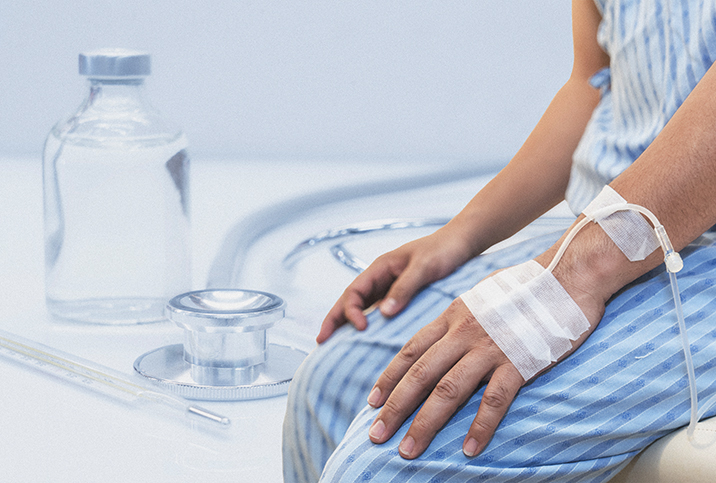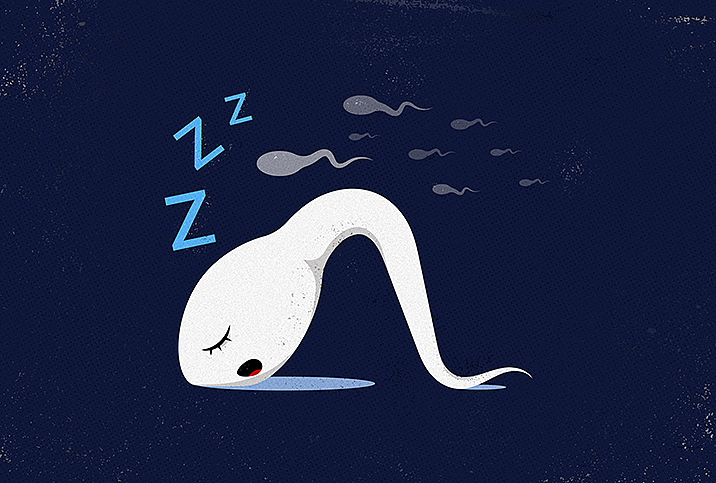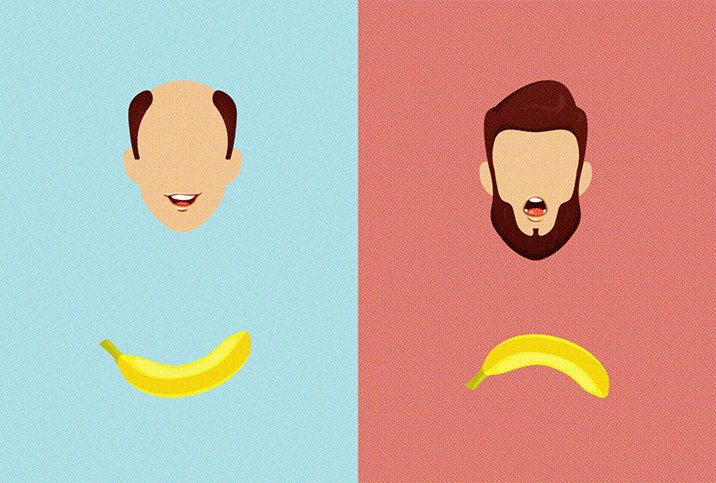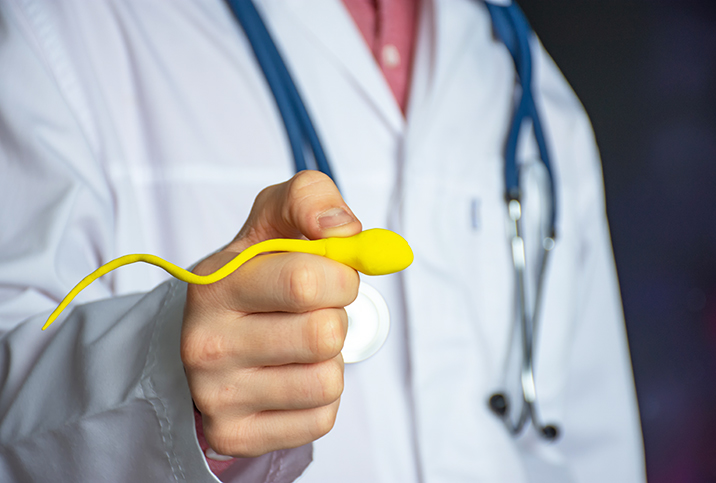Cancer Treatments May Affect Men's Fertility—Here's What You Can Do

Certain cancers—including prostate and testicular—can often affect a man's fertility due to the way a tumor might put pressure on male organs or disrupt processes such as sperm production and ejaculation. Treating cancer in its early stages may reduce your risk for these and other fertility problems. However, infertility is also a possible side effect of certain cancer treatments.
Familiarizing yourself with the risks of various cancer treatments can keep you informed and empower you to work with your doctor to tackle fertility issues before they potentially arise. Here's a look at potential workarounds if you need cancer treatment and want to preserve your fertility.
How do cancer treatments affect fertility?
Chemotherapy, radiation therapy and surgery are the most common cancer treatments that can affect fertility.
Chemotherapy
Chemotherapy works by destroying rapidly dividing cells in the body, but it may also harm sperm in men and sperm-forming cells in young boys. Men treated with chemotherapy may experience slowed or stopped sperm production after their treatment courses have ended.
Radiation therapy
Radiation therapy uses high-energy rays or particles to destroy cancer cells but can also damage cells that produce sperm when aimed at male reproductive organs. Radiation therapy used to treat prostate or testicular cancer has the potential to cause long-term fertility problems.
Surgery
Surgery may be performed to remove a tumor and surrounding tissue, which can impair fertility if certain male organs are removed or affected. Surgery to remove one or both testicles (called an orchiectomy) affected by testicular or prostate cancer is one example of when surgery can lead to infertility.
What factors increase your risk for infertility during cancer treatment?
Certain factors, including your age and the type of treatment and cancer, may increase your risk for fertility problems during and after cancer treatment. Medication dosage, the duration of treatment and the amount of time that has passed since treatment are other prominent factors that can affect fertility. Men who receive radiation therapy near their genitals may be at higher risk for infertility than men who took low doses of hormone therapy drugs for a short time.
Before your cancer treatment, your doctor will review your medical history and discuss any factors that may increase your risk for infertility.
How can men protect their fertility before, during and after cancer treatment?
Not all cancer treatments cause fertility problems, and in many cases, the problems may be only temporary. It's difficult to predict exactly how your fertility will be affected by cancer treatment, given the many factors involved. Fortunately, you can take steps to preserve your fertility before, during and after treatment.
Sperm banking
Also known as semen cryopreservation, sperm banking is a process in which your sperm is frozen before cancer treatment so it can be used later to fertilize your partner's or a donor's egg. This is one of the most common infertility workarounds for men who have cancer and want to conceive at a later time. Your sperm can be frozen and saved indefinitely until you're ready to have children.
If for some reason you are unable to produce a semen sample for sperm banking, your doctor may suggest testicular sperm extraction, which involves having your sperm medically extracted.
Testicular shielding
Also known as gonadal shielding, this procedure involves wearing a protective covering over your body to "shield" your testicles from radiation exposure during radiation therapy. Testicular shielding protects your pelvis and reproductive organs from "scatter radiation" when other parts of your body are being treated for cancer.
Other concerns
Erectile dysfunction (ED) and dry ejaculation are common sexual problems caused by cancer treatments. Some treatments may damage nerves and blood vessels involved in erections to cause erectile dysfunction, while other treatments may damage nerves and muscles involved in ejaculation to cause semen to pass into the bladder instead of the penis. If you are suffering from one or both of these sexual dysfunctions, your doctor may prescribe medications to resolve or improve these conditions.
In most cases, the benefits of cancer treatment outweigh the risks of not getting it. The good news is that you don't have to choose between treating your cancer and starting a family because there are many ways for you to raise children once you're cancer-free.


















